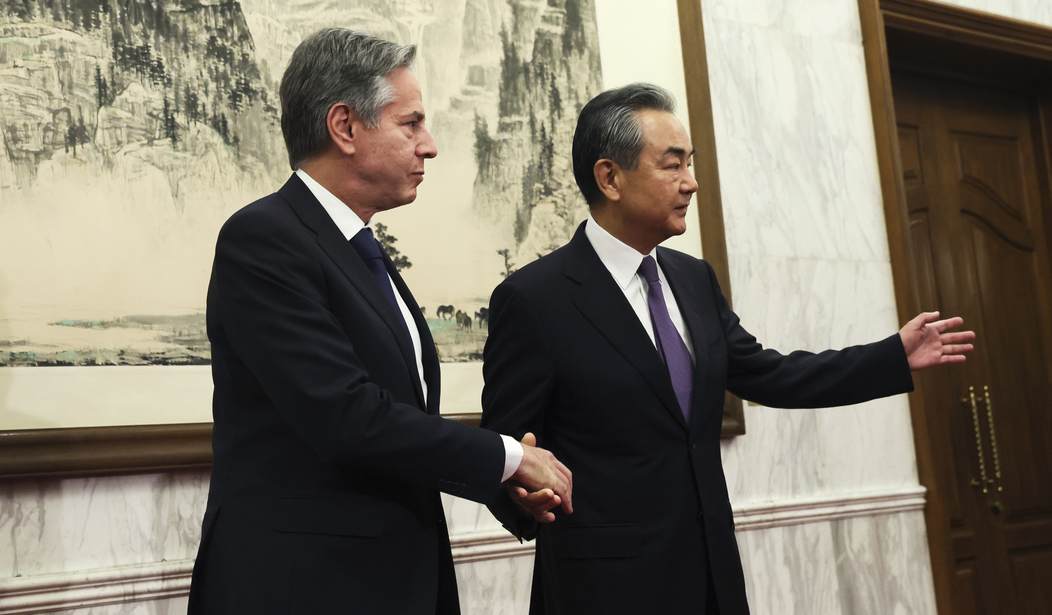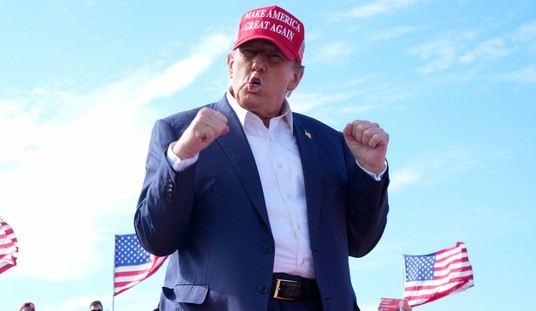Top Chinese diplomat Wang Yi has caused a bit of an uproar with racially-tinged comments he made at a trilateral forum in Qingdao, China, on Monday.
Wang, who currently serves as head of the Chinese Communist Party’s (CCP) foreign affairs commission, was directing the controversial remarks to Japan and Korea. He insinuated that Westerners are unable to distinguish between Chinese, Japanese, and Koreans, stating:
Americans take all visitors from China, South Korea and Japan as Asians. They cannot tell the differences and it’s the same in Europe.
No matter how yellow you dye your hair, or how sharp you make your nose, you’ll never turn into a European or American, you’ll never turn into a Westerner.
One needs to know where one’s roots are. China, Japan, Korea — if we can join hands and cooperate, it would not only suit the interests of our three countries, but also the wishes of our peoples and together we can prosper, revitalize East Asia and enrich the world.
Despite having just recently wrapped up talks characterized by Secretary of State Antony Blinken as “candid and constructive,” Wang also took a not-so-veiled jab at the United States in his remarks, noting:
[S]ome major countries outside the region deliberately exaggerate ideological differences, weave various exclusive small circles, and try to replace cooperation with confrontation and unity with division.
Only a region that is united and self-reliant can eliminate external interference and achieve sustainable development.
The jab is hardly surprising, given that Wang’s characterization of the talks afterward took a much more strident tone. As we reported:
But if you look at the readout from the Chinese as to their takeaway from the meeting, it’s a scolding of the U.S. It blames us for the problems, saying that a choice must be made between “cooperation and conflict.”
ICYMI #China readout on @SecBlinken meeting with top diplomat Wang Yi. Foreign Ministry translation: pic.twitter.com/qLITC8cizi
— Eunice Yoon (@onlyyoontv) June 19, 2023
The statement notes that Wang Yi said the “root cause is U.S. misperceptions toward China, which has led to misguided China policies.” How can things be resolved? It “is necessary for the United States to reflect upon itself” and follow the “mutual respect, peaceful coexistence and win-win cooperation put forward by President Xi Jinping as the fundamental guidance.”
Additionally, “Wang demanded that the United States stop playing up the so-called ‘China threat.’”
While China dismissed the stir prompted by Wang’s racially charged remarks, it does make one wonder how such characterizations would play were they issued by an American diplomat addressing, say, certain European countries.
Of course, it’s impossible to overlook the fact that, amid the rising tensions with China, the U.S. has security alliances with both Japan and South Korea, so this rather blatant racial appeal rings especially hollow.
As indicated, the comments drew sharp criticism.
On Twitter, Bonnie Glaser, Asia Director of the George Marshall Fund of the United States, wrote: “This message will not land well with Japan and South Korea. Does Wang Yi really think that national interests are less important than appearance?”
“The irony of … Wang Yi telling Japanese and Koreans ‘you can never become an American,’ is that Japanese and Koreans become Americans every day,” wrote Jeff M. Smith, director of the Asian Studies Center at U.S. think tank The Heritage Foundation.
“They’re part of the fabric of America. What they can’t become is Chinese. Tone deaf. Again,” Smith wrote.
Smith’s comments called to mind this Ronald Reagan quote shared by conservative commentator Avik Roy on Twitter on Independence Day:
“A man wrote me and said: ‘You can go to live in Germany or Turkey or Japan, but you cannot become a German, a Turk, or a Japanese. But anyone, from any corner of the Earth, can come to live in America and become an American.’”—Ronald Reagan, 1989 https://t.co/BMBID4lsmu
— Avik Roy (@Avik) July 4, 2023
A man wrote me and said: ‘You can go to live in Germany or Turkey or Japan, but you cannot become a German, a Turk, or a Japanese. But anyone, from any corner of the Earth, can come to live in America and become an American.’—Ronald Reagan, 1989
Whether appealing to racial stereotypes or economic or security interests, it’s likely we’ve not seen the last of China’s efforts to drive a wedge between the U.S. and its Indo-Pacific allies.















Join the conversation as a VIP Member